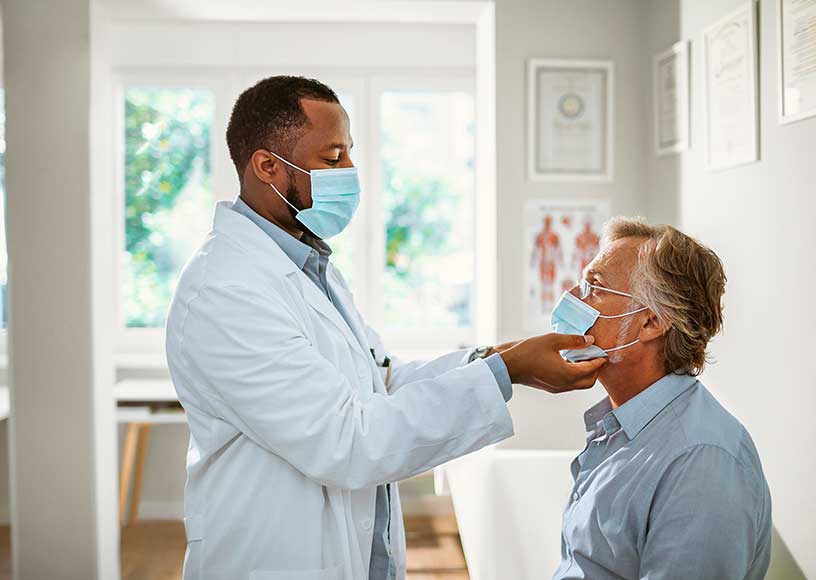What to know about bladder leaks — and tips on how to stay dry

Bladder control problems that cause urine to leak out are very common. In fact, up to 50% of all adult women will experience them at some point in their lives, and about one-third of men over the age of 65 will experience leaks too.1
These accidental leaks or loss of urine, or urinary incontinence, may affect a person’s quality of life. People may stop working out if exercising causes bladder leakage. Or they may say no to dinner invites because they’re nervous they might experience a leak in public.1
The good news is that there are treatment options available. Here’s what to know about bladder leaks and how a primary care provider (PCP) can help pinpoint and address the problem.
Who is most at risk of developing bladder leaks?
Bladder leaks can happen at any time, and at any age. But there are some typical risk factors. “The most common reason for bladder dysfunction is a weakened pelvic floor,” says Michelle Cooke, M.D., a primary care physician in Atlanta. “These are the muscles that contract (squeeze) to keep urine in the body, and they relax to allow you to urinate when you want to.”
Common risk factors include aging, prostate problems, smoking and constipation.2, 3 Chronic health conditions such as diabetes, Parkinson’s disease and multiple sclerosis also may increase the risk of bladder leaks.2
How a primary care provider (PCP) can help
If you experience bladder leaks, it’s important to make an appointment with a PCP to determine the cause and type of incontinence you may be experiencing. Often, one of the steps toward diagnosis is a urinalysis.5 It involves urinating into a cup. The urine is then tested for certain factors, including:6
- Bacteria that could be causing a urinary tract infection (UTI)
- Protein that could indicate kidney disease
- Sugar, which could mean type 2 diabetes
After a urinalysis, the PCP will likely take a medical history. They might seek info about when and why a person leaks. “Is it only at night? Or when you cough or sneeze? Is it continuous all day long?” Dr. Cooke says. “These clues give us insight into what may be causing bladder leakage.”
How are bladder leaks treated?
If health reasons — such as a UTI or diabetes — have been ruled out, the PCP may first recommend lifestyle changes to help treat urinary incontinence, Dr. Cooke notes. Those may include:7
- Staying active. The risk of developing urinary incontinence (as well as diabetes) is higher when a person is overweight or has obesity. Maintaining a healthy weight and staying active can help decrease leakage.
- Adding more fiber. Having more fiber in the diet can help prevent constipation, which can lead to bladder leakage.
- Doing pelvic floor exercises.8 Kegel exercises can strengthen the pelvic floor muscles and help reduce or even stop bladder leakage. These exercises work by tightening and relaxing the muscles that stop and start the flow of urine. To do them, a person must squeeze, hold and relax the pelvic floor muscles. This can be challenging to do without practice and instruction. A health care professional trained in pelvic floor therapy such as a registered nurse can help people learn how to correctly perform them.
If lifestyle changes are not appropriate or effective, a PCP may recommend a medication to help stop urine leakage.
When should a specialist be seen?
Sometimes bladder control problems require a visit to a specialist called a urologist. This is especially true if you still have leaks after seeing the PCP.
“Urologists can do more advanced tests to diagnose a bladder disorder,” says Dr. Cooke. Depending on the cause, they may recommend other treatment. That might include injecting Botox into the bladder to help relax it, undergoing electrical nerve stimulation or possibly having surgery.7
No matter how bladder leakage is treated, there are options to help bring relief and maintain quality of life. Talk to a PCP to start exploring ways to manage urinary incontinence.
